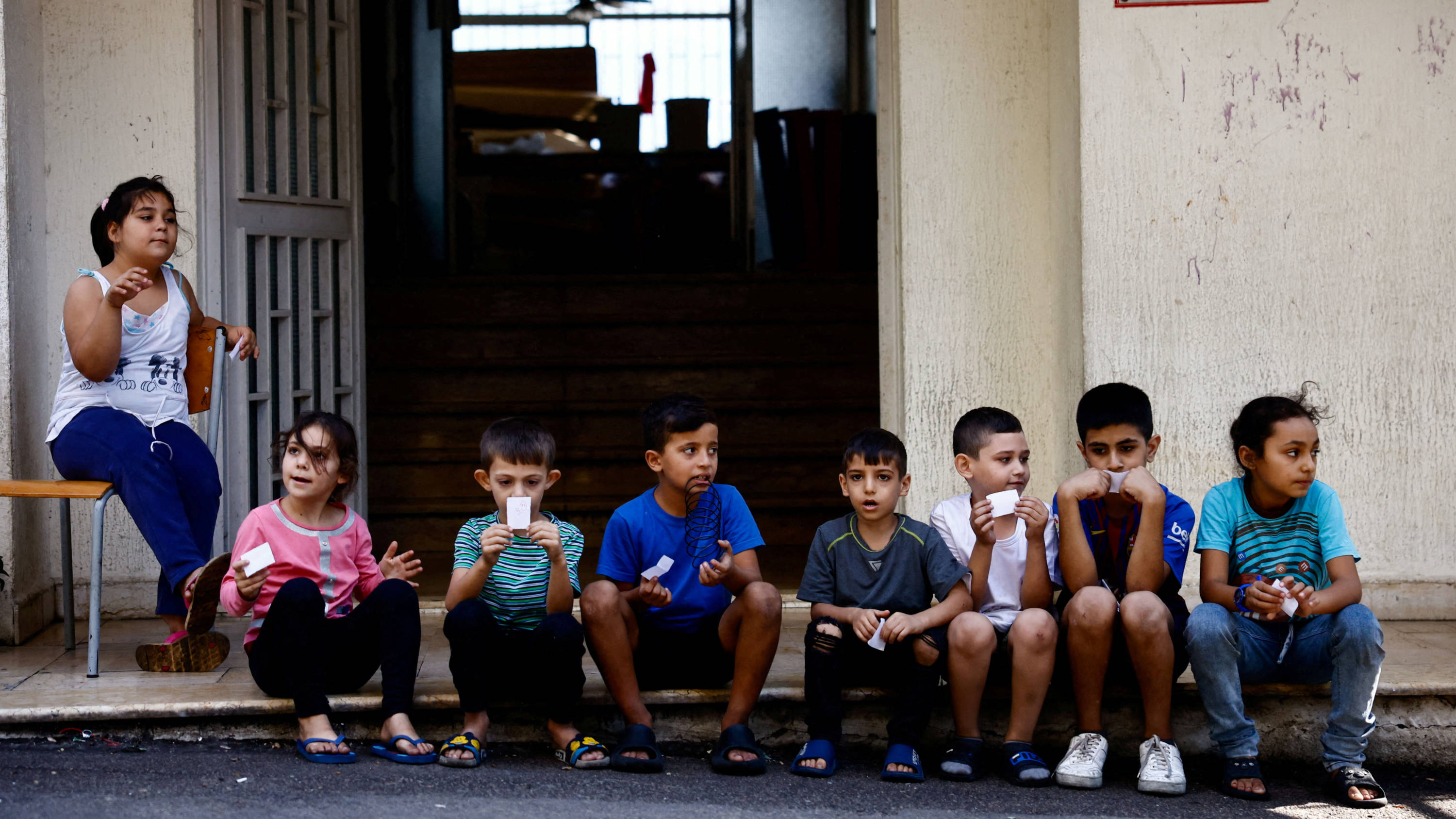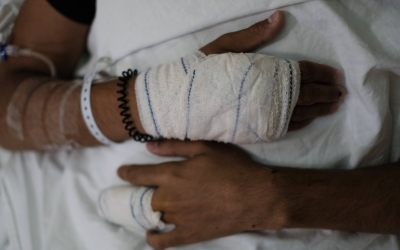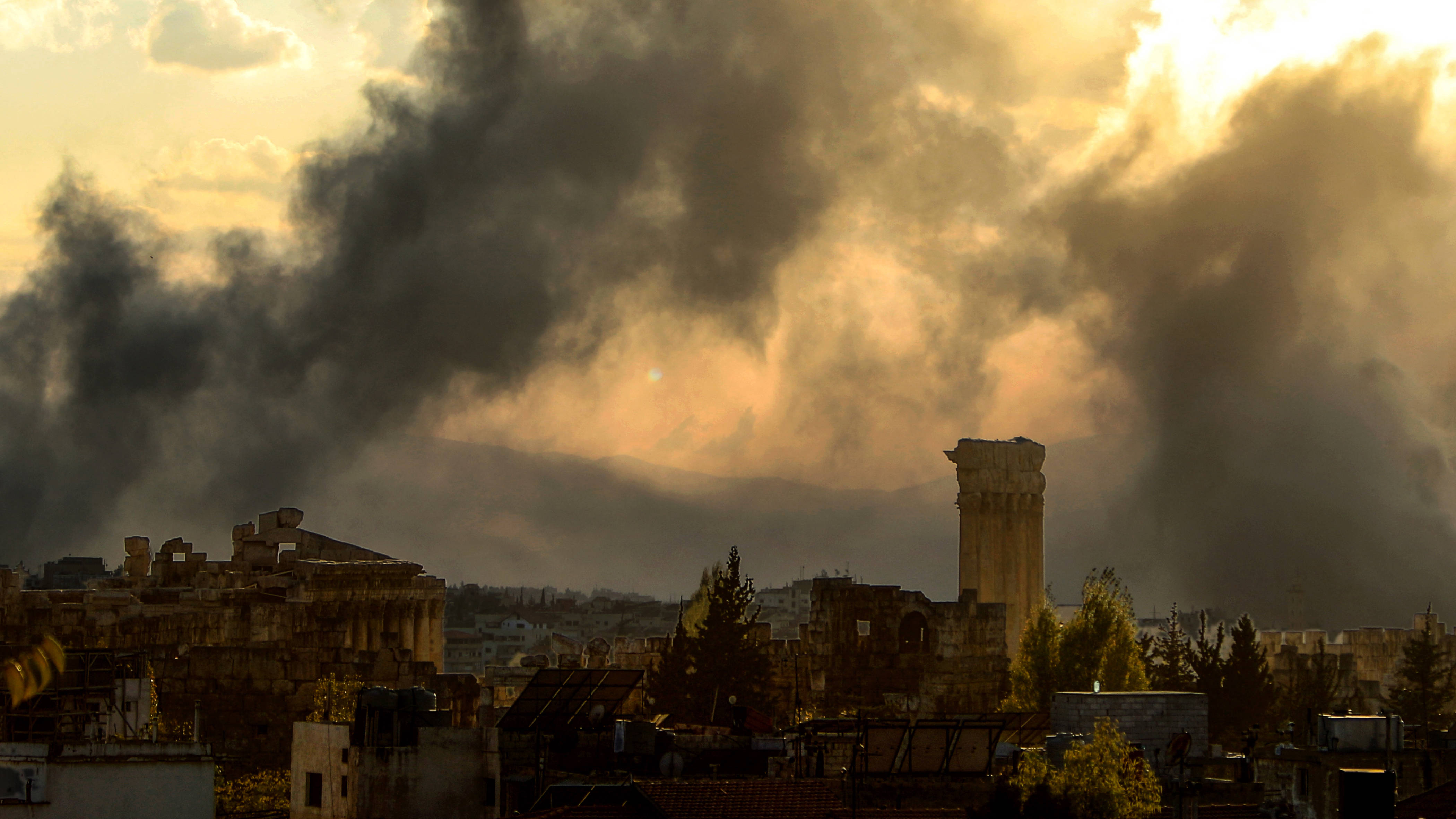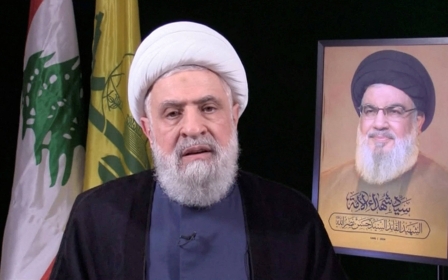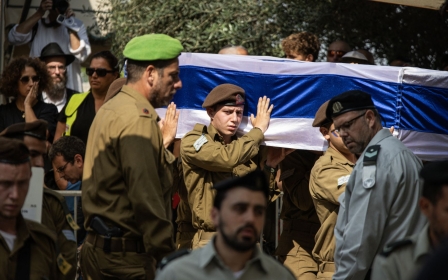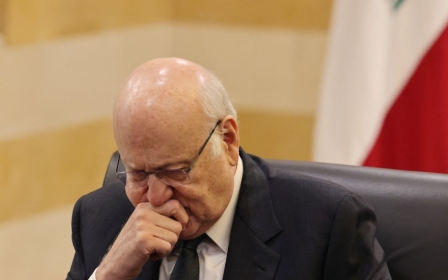Israel's war is devastating every aspect of civilian life in Lebanon
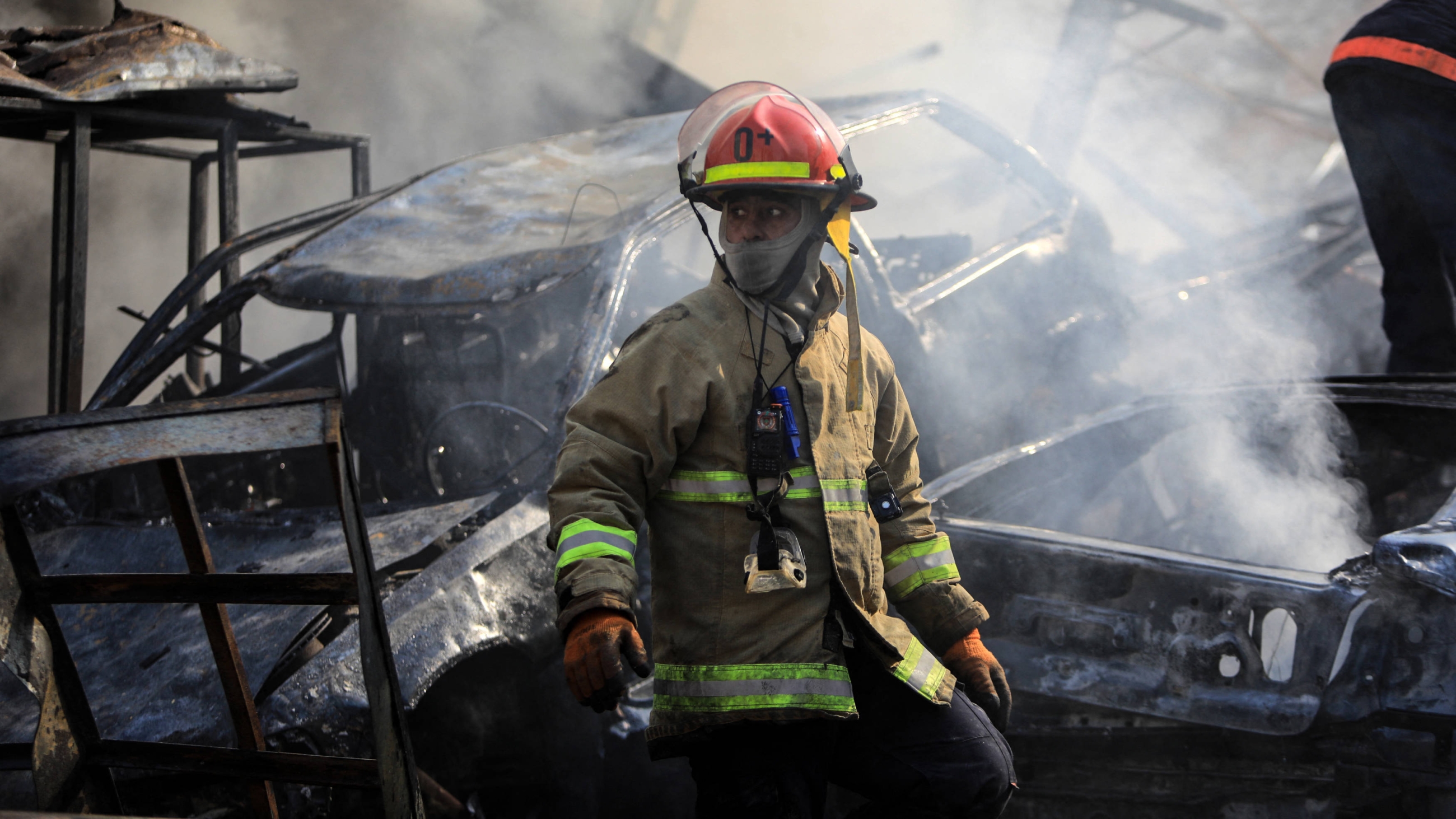
The balance sheet of Israel's ongoing war on Lebanon paints a grim picture. The climbing death toll is over 3,000 people, more than a million people have been displaced and nearly a quarter of buildings in southern Lebanon have been damaged or destroyed by Israeli bombings and detonations.
As the war drags on, with little to no indication of a potential ceasefire, fears are growing over all aspects of life in Lebanon and its social and economic future - already battered by five years of economic collapse.
The Independent Task Force for Lebanon (ITFL), a group of Lebanese economists and researchers, has warned that the country’s economic losses from Israeli bombardment may exceed $20bn, while the percentage of people living in extreme poverty may reach 80 percent in heavily bombed areas.
Meanwhile, international humanitarian organisation Mercy Corps said that Lebanon’s GDP could contract by 12.81 percent should the war continue this way, or by 21.9 percent if Israel imposes a blockade and expands bombing and ground combat.
While no blockade has been officially imposed, Israel’s bombing of land crossings to Syria and its attacks close to the country’s airport have increased concerns over the movement of goods and people in and out of Lebanon.
New MEE newsletter: Jerusalem Dispatch
Sign up to get the latest insights and analysis on Israel-Palestine, alongside Turkey Unpacked and other MEE newsletters
All these issues are sounding alarms about the critical ways the war has severely disrupted the lives of Lebanon’s population and its long-term impact on the country.
Bleak economic reality
The conflict between Israel and Hezbollah had been largely contained to southern Lebanon until mid-September, when the Israeli military launched a widespread bombing campaign across the country and eventually launched a ground invasion.
Prior to the war, Lebanon had been dealing with the worst financial meltdown in its history, with the World Bank describing it as one of the three worst economic crises in 150 years.
“Where we come from is a place where we had not only a collapse of the banking sector and a decimation of the private stock of people,” Sami Zoughaib, an economist and research manager at Beirut-based think tank The Policy Initiative, told Middle East Eye. “We had also a major issue with people’s income as a result of recession, unemployment, underemployment, loss of currency, and so on.”
Laila al-Amine, Mercy Corps country director for Lebanon, added that the country was “really unprepared” for war due to these issues.
“Everything related to national infrastructure has been quietly collapsing for years. Whether we are talking about water, electricity, public health, public education.”
Lebanon’s residents sometimes only receive one or two hours of state-sanctioned electricity per day, with most of the population relying on private generator providers or, if they can afford them, solar panels.
Other sectors, particularly education, infrastructure and health, have witnessed similar challenges.
The war has devastated Lebanon’s tourism sector, which constituted a large chunk of the country’s fragile economy.
'Planes are leaving Lebanon with a full load but coming back empty, it does not break even'
- Middle East Airlines source
Additionally, mass displacement has left many people without homes or sources of income, as their jobs are geographically constrained.
Agriculture constitutes 80 percent of south Lebanon’s economy, according to Mercy Corps’ latest report on Lebanon, meaning those fleeing are simply unable to work.
Farmers have already missed two olive harvest seasons, as Israel has been bombing southern areas since October 2023, which Amine called a “huge hit”.
Zoughaib says that people have so far been able to live off their remaining savings, but “there will come a point where people will reach the complete depletion of the little stock of money that they have, and then what happens?”
Travel, trade, prices
Mercy Corps is particularly raising the alarm over the prospects of an Israeli blockade on Lebanon.
Zougheib says that since Lebanon remains largely able to import goods and take part in international trade, prices of goods have not drastically increased.
While experts previously told MEE that the blockade scenario is unlikely, additional fears were raised after Israel bombed the vicinity of three border crossings between Lebanon and Syria, leading to the closure of two of them.
The Israeli army had also previously threatened that it would not allow Lebanon’s only airport, the Rafik Hariri International Airport, to be used for anything other than civilian purposes.
All international carriers have cancelled their flights to and from Beirut since Israel’s escalation began in September, leaving the national carrier Middle East Airlines (MEA) as the sole company operating flights in the country.
A source in MEA told MEE that while the company has reduced the number of planes operating in October due to reduced demand, it has never cancelled a flight.
The source, who spoke on condition of anonymity, said the company receives regular assurances from Lebanon’s prime minister as well as ambassadors of western states who tell them the airport and the road leading to it are safe.
While the carrier was widely praised for remaining operational despite recurring Israeli strikes on Beirut, questions have been raised regarding its pricing.
The source in the company said that they were unable to reduce their prices following the summer high season, which typically ends in September.
“Planes are leaving Lebanon with a full load but coming back empty, it does not break even,” the source said.
‘Evacuation’ orders, disruption of urban life
Some of the most prominent aspects of Israel’s war on Lebanon have been the so-called “evacuation” orders, or messages the Israeli army sends ordering residents of areas across the country to leave before it bombs them.
This tactic has been widely inconsistent and heavily criticised by the United Nations, human rights organisations and observers. Not only has Israel struck many places without warning, killing scores of civilians, but very often residents are given mere minutes to pack their belongings and leave before the bombing begins.
“This is terrorising, not just disrupting life,” said Mona Harb, professor of urban studies at the American University of Beirut and research lead at the Beirut Urban Lab. “It is a terrorising act that is part of the psychological warfare that is waged on Lebanon.”
Harb says that these orders destroy any sense of normalcy in people’s lives, as they never know when they might be ordered to leave. Notably, many orders come late at night, when people are sleeping.
“It is very difficult to plan what you are going to do beyond the same day, even. You cannot project yourself in any horizon to the next day or the day after,” she added.
Beirut’s southern suburbs, commonly known as Dahiyeh, have been a regular target of these orders to leave, with most of the area’s population now displaced in Beirut and elsewhere.
While orders in Dahiyeh have mostly focused on individual buildings and their surroundings, the Israeli army has also ordered over half of the historic southern city of Tyre, known in Arabic as Sour, and the entirety of the ancient eastern city Baalbek to “evacuate”.
Killing of a city
Israel says it is targeting Hezbollah activity in the locations it bombs, without providing evidence, while conducting an indiscriminate bombing campaign that has seen a large number of civilians lose their homes, livelihoods and entire neighbourhoods.
Lebanese urban researchers labelled Israel’s actions as urbicide, or the deliberate wrecking or killing of a city.
'The extent of the damage is large and spread in ways that...erases all the memories inhabitants have associated with all these sites'
- Mona Harb, professor of urban studies
“The extent of the damage is large and spread in ways that also destroy the socioeconomic life, the social infrastructure, the economic infrastructure, civilian facilities, markets, gardens, parks, whatever makes up the fabric of that city,” Harb said.
“At the same time, it erases all the memories inhabitants have associated with all these sites.”
Much of Dahiyeh, Sour, Baalbek and other cities and towns in Lebanon are now empty, having lost the dynamic life that gave these places their value among residents.
Most of the people frequenting them now are residents who sneak in during the early hours of the day to check on their homes and properties.
While normal life has largely resumed in some parts of Beirut and other Lebanese cities that have been spared from Israeli bombing, traffic has heavily increased, while some localised tensions have been reported between locals and displaced people in certain areas.
Additionally, the scale of destruction in southern and eastern Lebanon, as well as in Dahiyeh, is so extensive that the prospect of people returning to their homes and normal lives seems unlikely in the foreseeable future.
“People will be displaced for years to come,” Zoughaib said.
Middle East Eye delivers independent and unrivalled coverage and analysis of the Middle East, North Africa and beyond. To learn more about republishing this content and the associated fees, please fill out this form. More about MEE can be found here.


